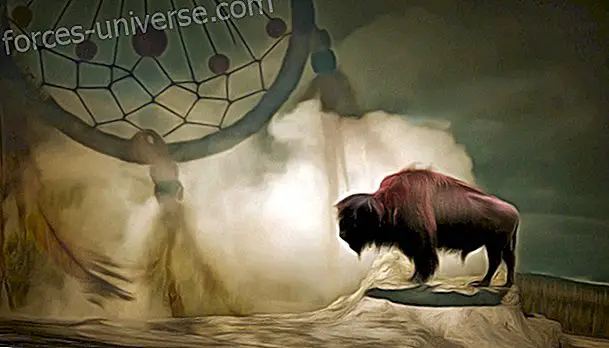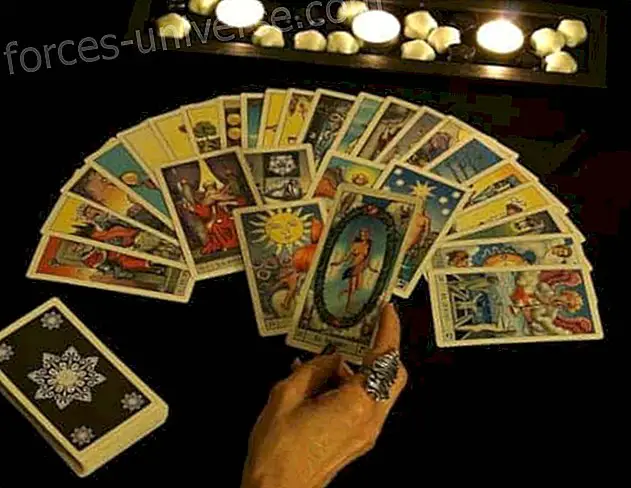This is a question of gnoseology or knowledge theory . The act of knowing is a primary fact, through which the Self also expresses itself intuitively and does not admit demonstrations or explanations, but is an experience inherent in conscious existence .
Table of Contents
|
The Being, is that reality that transcends itself, includes what exists under space (whose substrate is geometry ) and time (which is based on arithmetic ) but in turn transcends everything, being also subject to Gnoseology
In this sense, the perennial acrisolar of human consciousness also participates in Being, because it allows its apprehension and question.
What is Gnoseology?

Gnoseology or general theory of knowledge, is the branch or metaphysical discipline that is responsible for studying the origin, possibility and essence of human knowledge . As well as the species of knowledge and the criteria of truth used in science .
Consequently, scientific epistemology follows from gnoseology . The word was used in this sense since the seventeenth century. However, its etymology comes from the Greek Gnosis which translates knowledge .
Also, the theory of knowledge is about understanding the philosophical positions that have responded to the problem of Being .
In order to find a coherence and validity of its most theoretical and interpretative principles to understand reality, getting closer to the real thing, by That knowledge is perfectible and subject to paradigm changes .

The Being-In-Yes and the Gnoseology

As seen in the previous entries, metaphysics is the attempt to know through human faculties, the Self and its relations with the existing.
Being therefore its object the Being of the entities, but is it competent to find what the Being is in itself?
This is a question of gnoseology or knowledge theory . The act of knowing is a primary fact, through which the Self also expresses itself intuitively and does not admit demonstrations or explanations, but is an experience inherent in conscious existence .
I say the above, because it would not be possible to explain what the celestial or cobalt blue color would be to a blind man of birth, or the same; satisfactory explanations could not be given regarding paranormal phenomena or astral travel, because they are lived by the person as an act of intimacy.
Now, to start the starting point of metaphysics from human gnoseology, it is necessary to start from the knowledge given by sensible intuition: to have the sensation of everything that is shown to the senses, to perceive and experience them.
But, not only does man stay there, sharing this dimension with animals, but it encompasses the system of symbolization and translation of what is experienced in words by the cognitive act.
Therefore, the self is not known, but the representation of what is made of it, the human understanding .
Likewise, the transmission of new knowledge and ideas through thought and its application to transform reality, is a dimension of what is called objective knowledge, typical of the particular sciences that take root in the ontological entity .
Now, let's think about the following: If it is attributed to you that the Self itself is the essence of the Divine Being, what happens to the Self-itself ?; Wouldn't it be reducing the Entity and the attributes that human understanding gives to God: omnipotent, omniscient, etc?
Indeed, there would be a reductionism of Being in one of its modes of expression: The rational entity contemplated as God.
Hence, throughout history, the beings became something venerable, forgetting the opening of the Self in itself and ending in a fanaticism that clouds reason and freedom.

Will there be a privileged Entity?

Metaphysics, such as knowing that transcends science, asks about everything that exists and provides verifiable knowledge and hypotheses only in the singular praxis, using reason, intuition and experience.
Now , intuitively what would be the most privileged entity of all?
Undoubtedly, it would be all those existing who have awareness of themselves and the surrounding world and the various relationships of everything that becomes .
It would be in part, those beings that can be anchored to a language, since "world", "thing", "something", "the one", "the beautiful", "the true and" the good "(the moddi essendi) they correspond to an idea, or ens rationis captured by language and understanding from the ens reale .
Then, all those entities that are ontologizing, that is, that are capable of inventing, reinventing themselves, and carrying the modes of being, would be privileged .
Thus; you are a privileged entity, because unlike your computer, or your pet, you can renew yourself and be more and more free as you discover your being : Your (psyche) or soul.
This, classically, is known as transcendental consciousness (or gnoseological), because unlike empirical consciousness, that enables the unification of all material and perceptual contents, appealing to the unity and identity of the Being of your consciousness and of all possible knowledge, giving a sense of infinity and existential openness.
And in this, figures of consciousness are displayed that must be integrated, through sensations, perceptions, self-consciousness, unhappy consciousness, dream symbols and archetypes of unconscious complexes.
In this way, for the human being, his soul constitutes a privileged mystery in the occurrence of existence.
In the same way its topology (according to the analytical psychology) that is conformed in: the collective unconscious, the personal unconscious and the conscious.
Consciousness includes consciousness, a constitutive element that links directly to the world.
Because of the above, consciousness is always awareness of something or in other terms it is intentional .
Consequently, we do not have it materially as an internal organ in the style of the heart, or the liver or the brain. But it is an act of openness to the world, which has its eidetic contents.

The problem of Being in the East

Ultimately the problem of gnoseology about the knowledge of the Self-in-itself concerns the entire human species, so it is closely related to the Eastern Taoist philosophy of Lao-Tse. It is said that nobody knows what Tao is, he himself is a mystery . That is why it is stated that:
"The tao that can be called tao, is not the real tao"
Etymologically, the tao is a term used by the Chinese civilization that translates as "way, " "way." This "path" is undetermined and it could be suggested that it governs the alternation of duality and opposites.
It is not surprising that yin and yang were configured as the symbol to approach the problem of Being, for the Orientals.
But if it is typecast in language its very essence would be lost, and as in the western case, the Being would be confused with the Entities .

What does the man of Being know?

It is well known in gnoseology from experience and reflection that man can know about Being; various realities and entities.
But how does it do it? Part mainly of two elements that condition this material world:
- The extension (material and spatial things)
- and thought (as a reflection of temporality and arithmetic).
The first is closely related to the body, with sensation and perception and the second also with the brain and the central nervous system.
However, it transcends it in relationships and its contents and in its active capacity towards the thing ( res), so it participates in nature (ens reale), but more in thought (ens rationalis) and can transform it.
However, there are other attributes of Being since he is undetermined and would form a substance with infinite attributes - but naturally we would know only those two .
So a person with other types of extrasensory perception (which hypothetically could be related to the levels of the unconscious) could intuit other attributes, aspects and contents that are not normally within reach, such as, for example, the aura, ghosts, or a Seer who accesses the qualities of time .
Also, from a theoretical perspective, one could say that a non-human being, such as an alien or an angel could capture other attributes of the substance, that we could not easily grasp by our physical confinement.
Based on the above, part of medieval philosophy (especially that of Thomas Aquinas) specified and gave an explanation about the metaphysical starting point of angelic understanding to differentiate it from ours.
Thus, the Delphi oracle of the Greek civilization was very wise, presenting the following sentence of gnoseology :
" Man know yourself and you will know the universe and the gods ."
Because given the constitution of the psychic and bodily apparatus, man starts from three aspects by which he expresses himself in Being in his conscience, namely: The astonishment, the Doubt and the anguish of knowing finite before the infinite: Divinity and the cosmos .
So, when man advances and throws himself into the study of his inner being, he knows his mysteries, his intentional contents, and his hidden stone to work it and begin a renovation that allows him to transform his world by virtue of his faculty libertarian of reason.
Therefore, it is also his responsibility to know the ontological principles that allow a better discernment of being.
It seems that the Being from gnoseology, is that condition that enables the reality circumscribed to the symbolic, the imaginary and material, as well as that which cannot be introduced in these dimensions:
Because to define being is to confuse it with the Entity, as we saw in the previous entry and this would be to destroy the Being conceptually. Ultimately it is up to man to know himself mainly .

Author: Kevin Samir Parra Rueda, Editor in the Great Family of Hermandadblanca.org
Sources:
- Burk, I. (2001). Philosophy. An Updated Introduction. Caracas, Venezuela: Buchivacoa
- Wikipedia Taoism Online document Available at https://es.wikipedia.org/wiki/Tao%C3%ADsmo






